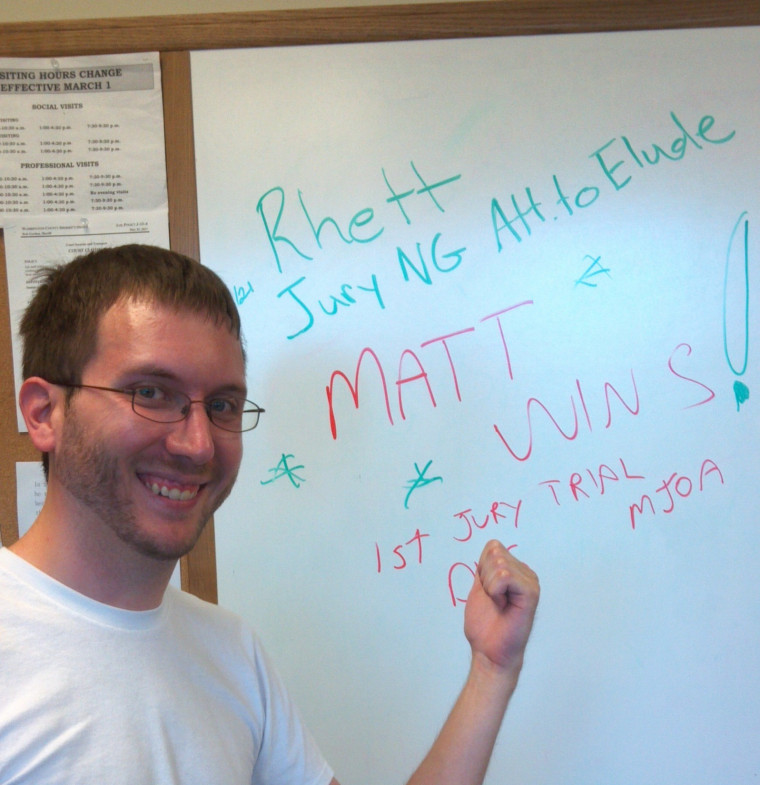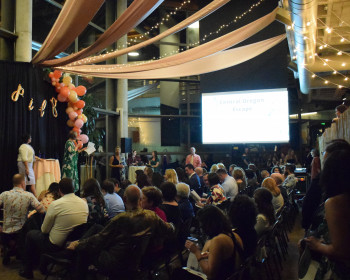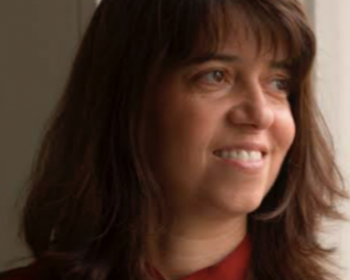Matthew Blythe
2012
Open gallery

This summer I worked as a Certified Law Student (CLS) with the Washington County office of Metropolitan Public Defender Services (MPD). Oregon law allows law students who have met certain requirements to appear in court and represent clients in misdemeanor cases with the supervision of a licensed attorney. The public defender’s office has no shortage of clients to represent or court appearances to make, so my supervising attorney was happy to let me work with as much independence as was reasonable. I was responsible for managing a variety of cases at various stages of proceeding: conducting preliminary client interviews, reviewing police reports, drafting motions, submitting plea petitions, and even going to trial. I worked alongside four other CLS’s. Each of us handled between twenty and twenty-five cases over the course of the summer, with several stragglers extending on into the fall.
Twenty cases is not that many cases in an office where the average attorney is juggling eighty clients at any given time, but those twenty cases certainly felt overwhelming at first. I had never worked in criminal law or interacted directly with clients before coming to MPD. The first couple of weeks were especially difficult as I struggled to learn office procedures, master local court rules, and apply abstract knowledge from my criminal law classes in a practical environment for the first time. My supervising attorney was a great help in easing me into my caseload and taking time out of his own hectic schedule answer questions and offer suggestions, but I still felt like I was being pulled in twenty different directions. The high point of those initial weeks turned out to be the clients themselves, most of whom were great fun to deal with. I sympathized with them much more than I had expected to. Many of them had made bad decisions or done bad things, but they were real people, and none of them could simply be dismissed as “criminals.”
Lack of efficient and fair pretrial release procedures in Washington County is a serious problem for many accused persons. Release hearings can more than a week to schedule, and the decision on whether to release an accused person or hold him or her in jail while awaiting trial often hinges on the decision of the county’s sole release officer. That release officer thus has a great deal of influence, and that influence is often used to pressure accused persons into pleading guilty. Many of my clients decided to plead guilty to the charged crime rather than be held in jail while awaiting trial. One client opted to be held in jail for 60 days–the maximum amount of pretrial detention allowed by law–rather than plead guilty to a crime he believed he had not committed even though the plea offer was only 20 days. On the morning of his trial, the state dismissed the charges against him, and he went free. I was happy to challenge the county’s release policy at every turn, as were my coworkers.
As I got used to the job, my lighter caseload allowed me to devote more time to each individual client. My cases ranged from traffic violations to property crimes to person crimes. The issues were often complex and benefited from extra time spent on legal research. I got in a lot of good motions practice, and many of the motions I submitted yielded good results for my clients.
The most exciting part of the summer came right at the end. In my second-to-last week as a CLS, I actually got to try a Driving While Suspended case in front of a jury. I argued a motion to suppress and several motions in liminy, conducted voir dire, made an opening statement, and conducted examinations of witnesses. I did not, however, get a chance to make the closing argument that I had spent several days painstakingly crafting, as I successfully argued for acquittal of my client after resting in my case-in-chief. It was immensely gratifying to know that my client, a very nice man who had fallen through the cracks of the DMV system, was saved from probation, fines, and possible jail time.
I cannot think of a better summer job for a law student than working as a CLS with a public defender’s office. The experience of interacting with clients, managing a caseload, and making court appearances will serve me well regardless of what field of law I decide to enter. Meanwhile, I had the privilege to assist some of society’s most disenfranchised individuals in their defense against the state’s efforts to charge them with crimes.
More Public Interest Law Project (PILP) Stories
Public Interest Law Project (PILP) is located in McCarty Classroom Complex.
MSC: 51
email pilp@lclark.edu
voice 503-768-6782
fax 503-768-6729
President: Natalie Hollabaugh
Auction Directors: Faith Fox & Hanah Morin


